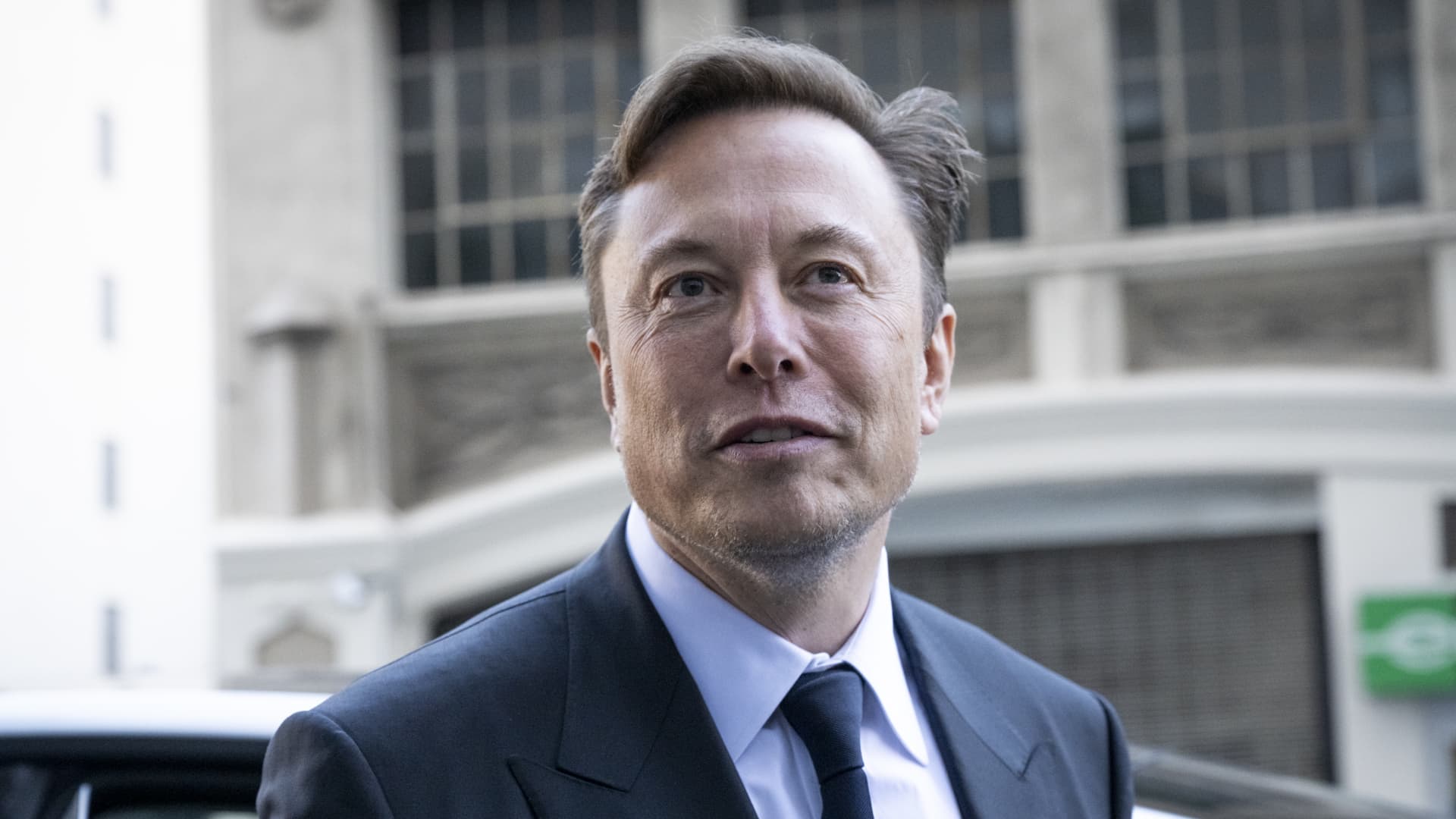Elon Musk, chief executive officer of Tesla Inc., departs court in San Francisco, California, US, on Tuesday, Jan. 24, 2023.
Marlena Sloss | Bloomberg | Getty Images
Tesla, SpaceX and Twitter CEO Elon Musk called for federal regulation of AI technology during a taped interview on Fox News Channel’s “Tucker Carlson Tonight” that aired on Monday.
Musk revealed that he wants to start a new AI initiative called “TruthGPT” because he fears that existing AI businesses are training their systems to be “politically correct.”
The celebrity CEO also spoke at length about his AI fears and ambitions at Twitter, the social media company he acquired in a $44 billion deal in October 2022. He did not discuss Tesla or SpaceX in detail with Carlson during the Monday night segment of the interview.
Part two is scheduled to air on Tuesday, April 18, on Fox.
Regulating AI
Musk told Carlson he envisions a regulatory agency that “initially seeks insight into AI, then solicits opinion from industry, and then has proposed rule-making,” something like the Federal Aviation Administration and the way it has come to work with aviation and aerospace companies. With an agency and industry-accepted rules in place, “I think we’ll have a better chance of advanced AI being beneficial to humanity,” Musk said.
The centi-billionaire, who is also the co-founder of Neuralink and The Boring Co., said that he wants to start a new AI initiative called “TruthGPT” that he wants to be a “maximum truth-seeking AI that tries to understand the nature of the universe.”
Previously, Musk signed a letter calling for a pause on advanced AI research, which he and others believe can harm society.
“Contemporary AI systems are now becoming human-competitive at general tasks, and we must ask ourselves: Should we let machines flood our information channels with propaganda and untruth?” the letter read.
The new technology would ostensibly compete with similar efforts by Sam Altman-led OpenAI, which was initially funded by Musk, Google’s DeepMind and other AI initiatives around the world.
“I think this might be the best path to safety, in the sense that an AI that cares about understanding the universe, it is unlikely to annihilate humans because we are an interesting part of the universe,” Musk said on the show.
Musk added that he is worried that current AI technology is “being trained to be politically correct, which is simply another way of…saying untruthful things.”
Twitter and elections
During the primetime interview, Musk also discussed Twitter, the social media company he acquired late last year in a $44 billion deal.
Carlson asked Musk if he was surprised to learn how much access intelligence agencies had to Twitter.
Musk said, “The degree to which various regulatory agencies effectively have full access to what’s going on on Twitter blew my mind.” He said that included “DMs” or direct messages because they were not encrypted.
In the U.S., law enforcement agencies can subpoena a social media user’s direct messages or any other information held by a U.S. company, which is not end-to-end encrypted.
Musk is now promising that Twitter will allow users to “toggle encryption on” for direct messaging as early as next month.
Asked if he believed Twitter would figure heavily in future elections as it did during President Trump’s campaign and presidency, Musk said, “I think it will play a significant role in elections, not just domestically but internationally.”
Twitter is now running with about 20% of the employees it once had, which numbered around 7,500 at the time he took over, Musk said on Monday without giving a specific number. “If you’re not trying to run some sort of glorified activist organization, you can really let go of a lot of people it turns out,” Musk quipped.
Musk has accused Twitter’s prior management and technology of unfairly benefitting Democrats and left-leaning users. However, Stanford researchers previously found “algorithmic amplification” of right-leaning content on Twitter, not left-leaning, before Musk took over.


